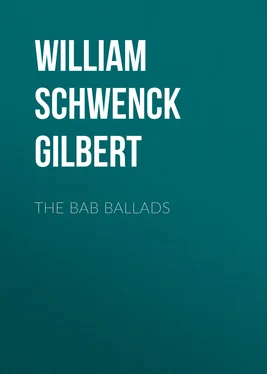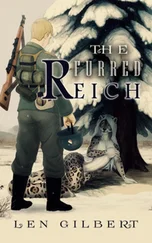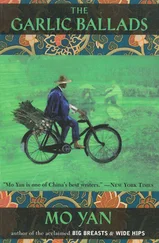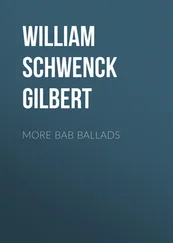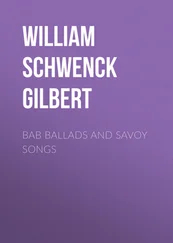Only a dancing girl,
With an unromantic style,
With borrowed colour and curl,
With fixed mechanical smile,
With many a hackneyed wile,
With ungrammatical lips,
And corns that mar her trips.
Hung from the “flies” in air,
She acts a palpable lie,
She’s as little a fairy there
As unpoetical I!
I hear you asking, Why—
Why in the world I sing
This tawdry, tinselled thing?
No airy fairy she,
As she hangs in arsenic green
From a highly impossible tree
In a highly impossible scene
(Herself not over-clean).
For fays don’t suffer, I’m told,
From bunions, coughs, or cold.
And stately dames that bring
Their daughters there to see,
Pronounce the “dancing thing”
No better than she should be,
With her skirt at her shameful knee,
And her painted, tainted phiz:
Ah, matron, which of us is?
(And, in sooth, it oft occurs
That while these matrons sigh,
Their dresses are lower than hers,
And sometimes half as high;
And their hair is hair they buy,
And they use their glasses, too,
In a way she’d blush to do.)
But change her gold and green
For a coarse merino gown,
And see her upon the scene
Of her home, when coaxing down
Her drunken father’s frown,
In his squalid cheerless den:
She’s a fairy truly, then!
The bravest names for fire and flames
And all that mortal durst,
Were GENERAL JOHN and PRIVATE JAMES,
Of the Sixty-seventy-first.
GENERAL JOHN was a soldier tried,
A chief of warlike dons;
A haughty stride and a withering pride
Were MAJOR-GENERAL JOHN’S.
A sneer would play on his martial phiz,
Superior birth to show;
“Pish!” was a favourite word of his,
And he often said “Ho! ho!”
FULL-PRIVATE JAMES described might be,
As a man of a mournful mind;
No characteristic trait had he
Of any distinctive kind.
From the ranks, one day, cried PRIVATE JAMES,
“Oh! MAJOR-GENERAL JOHN,
I’ve doubts of our respective names,
My mournful mind upon.
“A glimmering thought occurs to me
(Its source I can’t unearth),
But I’ve a kind of a notion we
Were cruelly changed at birth.
“I’ve a strange idea that each other’s names
We’ve each of us here got on.
Such things have been,” said PRIVATE JAMES.
“They have!” sneered GENERAL JOHN.
“My GENERAL JOHN, I swear upon
My oath I think ’tis so—”
“Pish!” proudly sneered his GENERAL JOHN,
And he also said “Ho! ho!”
“My GENERAL JOHN! my GENERAL JOHN!
My GENERAL JOHN!” quoth he,
“This aristocratical sneer upon
Your face I blush to see!
“No truly great or generous cove
Deserving of them names,
Would sneer at a fixed idea that’s drove
In the mind of a PRIVATE JAMES!”
Said GENERAL JOHN, “Upon your claims
No need your breath to waste;
If this is a joke, FULL-PRIVATE JAMES,
It’s a joke of doubtful taste.
“But, being a man of doubtless worth,
If you feel certain quite
That we were probably changed at birth,
I’ll venture to say you’re right.”
So GENERAL JOHN as PRIVATE JAMES
Fell in, parade upon;
And PRIVATE JAMES, by change of names,
Was MAJOR-GENERAL JOHN.
To A Little Maid—By A Policeman
Come with me, little maid,
Nay, shrink not, thus afraid—
I’ll harm thee not!
Fly not, my love, from me—
I have a home for thee—
A fairy grot,
Where mortal eye
Can rarely pry,
There shall thy dwelling be!
List to me, while I tell
The pleasures of that cell,
Oh, little maid!
What though its couch be rude,
Homely the only food
Within its shade?
No thought of care
Can enter there,
No vulgar swain intrude!
Come with me, little maid,
Come to the rocky shade
I love to sing;
Live with us, maiden rare—
Come, for we “want” thee there,
Thou elfin thing,
To work thy spell,
In some cool cell
In stately Pentonville!
JOHN courted lovely MARY ANN,
So likewise did his brother, FREDDY.
FRED was a very soft young man,
While JOHN, though quick, was most unsteady.
FRED was a graceful kind of youth,
But JOHN was very much the strongest.
“Oh, dance away,” said she, “in truth,
I’ll marry him who dances longest.”
JOHN tries the maiden’s taste to strike
With gay, grotesque, outrageous dresses,
And dances comically, like
CLODOCHE AND Co., at the Princess’s.
But FREDDY tries another style,
He knows some graceful steps and does ’em—
A breathing Poem—Woman’s smile—
A man all poesy and buzzem.
Now FREDDY’S operatic pas —
Now JOHNNY’S hornpipe seems entrapping:
Now FREDDY’S graceful entrechats—
Now JOHNNY’S skilful “cellar-flapping.”
For many hours—for many days—
For many weeks performed each brother,
For each was active in his ways,
And neither would give in to t’other.
After a month of this, they say
(The maid was getting bored and moody)
A wandering curate passed that way
And talked a lot of goody-goody.
“Oh my,” said he, with solemn frown,
“I tremble for each dancing frater ,
Like unregenerated clown
And harlequin at some the-ayter.”
He showed that men, in dancing, do
Both impiously and absurdly,
And proved his proposition true,
With Firstly, Secondly, and Thirdly.
For months both JOHN and FREDDY danced,
The curate’s protests little heeding;
For months the curate’s words enhanced
The sinfulness of their proceeding.
At length they bowed to Nature’s rule—
Their steps grew feeble and unsteady,
Till FREDDY fainted on a stool,
And JOHNNY on the top of FREDDY.
“Decide!” quoth they, “let him be named,
Who henceforth as his wife may rank you.”
“I’ve changed my views,” the maiden said,
“I only marry curates, thank you!”
Says FREDDY, “Here is goings on!
To bust myself with rage I’m ready.”
“I’ll be a curate!” whispers JOHN—
“And I,” exclaimed poetic FREDDY.
But while they read for it, these chaps,
The curate booked the maiden bonny—
And when she’s buried him, perhaps,
She’ll marry FREDERICK or JOHNNY.
Sir GUY was a doughty crusader,
A muscular knight,
Ever ready to fight,
A very determined invader,
And DICKEY DE LION’S delight.
LENORE was a Saracen maiden,
Brunette, statuesque,
The reverse of grotesque,
Her pa was a bagman from Aden,
Her mother she played in burlesque.
Читать дальше
